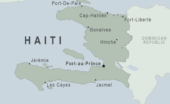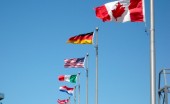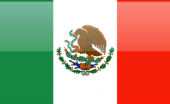Re Ian Bremmer 'Could third-party candidates upend the 2024 US election?' 3 April The current political movement in the USA…
Wednesday Night #1924
Written by Diana Thebaud Nicholson // January 30, 2019 // Wednesday Nights // Comments Off on Wednesday Night #1924
Afghanistan, Brexit, Canada, Davos, China, U.S. , Venezuela … where to start?
The U.S. government shutdown is over – at least for now (With Border Talks Set to Start, Trump Says He’s Willing to Close Government Again) – and the consensus is that Donald Trump ‘caved’. Cost to the U.S. economy? $11 billion, nearly a quarter of which is permanently lost, the Congressional Budget Office said.
Trump gets to deliver the State Of The Union (SOTU) on February 5th. The State of the Union shifts power to the president. Pelosi took it back. is a very worthwhile summary of the evolution of SOTU, “A report initially intended to help lawmakers manage oversight of the executive branch that took more than a century to metastasize into the potent rhetorical weapon it now represents for presidents.” Although George Washington and John Adams delivered short in-person addresses to Congress, Thomas Jefferson, believed that these speeches gave too much attention and power to the executive. So he opted to send the 1801 report in a letter and for the next 112 years, that’s how it was done. Woodrow Wilson changed all that on 8 April 1913 when he delivered the first live annual report to Congress since Adams. Ever since, presidents have expanded the exercise, turning it eventually into today’s show-and-tell circus, complete with the exploitative appearance of guests in the gallery who serve to emphasize one and another point. Much as we might desire a return to more brevity and less show, it doesn’t seem likely.
Canada‘s House of Commons is back in session – the last before the October elections – and in its new home (for the next ten years) in the courtyard of the West Block. Paul Wells paints an amusingly sardonic picture of the first Question Period Parliamentarians settled into their news digs, where the acoustics are good and the decor—along with the MP’s rhetorical material—familiar
Canada-China relations got much worse. The U.S. has now filed a formal request for the extradition of Meng Wanzhou, and Ottawa is coping with fallout from (former) Ambassador John McCallum’s pronouncements regarding the case. The Globe & Mail’s Campbell Clark says Canada can expect more Chinese wrath as U.S. takes broad aim at Huawei. There have been suggestions that the PM should appoint a special envoy (e.g. Jean Chrétien) to negotiate for the release of the Canadian ‘hostages’. One of our diplomatic experts responds: “Not a bad idea in principle, but if I were giving any advice it would be to wait with such an appointment until after the Meng extradition process has played out ,whatever turn it takes. For now I doubt any special envoy from Canada would get a good , or any, reception. A hostage to a possible high level snub. That could make matters worse.” Jeremy Kinsman points out that “The Chinese are in a mano a mano with the US for very high stakes. If there’s a bilateral deal by March 1, the detainee situation will ease, if Ms. Meng’s detention is also eased. A Chrétien-like secret envoy has to focus on the relationship – the notion we are now in a place where neither country wants to be. Top Chinese won’t permit us to focus just on the Canadian detainees; high level talks have to cover what has happened to Ms. Meng, now aggravated by the US charges.” It looks like a long wait for Michael Kovrig and Michael Spavor. Meanwhile, David Lametti has a very hot file to deal with as he takes up his role as Canada’s new Minister of Justice.
While most attention has been focused on the China file, Canada is also closely monitoring what is happening in Venezuela and will host the Lima Group next Monday (4 February) in an effort to find a resolution to the crisis. The move comes days after Canada recognized Juan Guaido, the Venezuelan opposition leader, as interim president of the country and rejected Nicolas Maduro’s government as autocratic and illegitimate. Guaido, the democratically elected leader of the opposition in Venezuela’s National Assembly, declared himself interim president last week. One of the best analyses of the situation is on CBC’s Power & Politics NDP questions Trudeau’s response to Venezuela crisis (video) which includes an excellent interview with Ben Rowswell, Canada’s former ambassador to Venezuela, who argues that backing Guaido and the National Assembly is standing with the only democratically elected institution left in the country while striking its own path. Note that Mr. Rowswell is speaking at Canada: Alone in the World?, the Canadian International Council (Montreal) event on February 7th (Reservations required)
Jeremy Kinsman and Larry Haas weigh in on the United States filing an extradition request for Huawei CFO MENG Manzhou and ongoing political turmoil in Venezuela.
Afghanistan peace talks have been taking place in Qatar. Our friend C. Uday Bhaskar writes that the US and Taliban negotiators have worked out a framework for a ceasefire to the 17-year war in Afghanistan – with a deal under discussion that would result in the withdrawal of American troops, and insurgents promising not to allow the country to host militant groups like al-Qaeda. “Does this latest of flurry of activity mean that the end of a foreign military presence in Afghanistan is in sight? The signals are mixed and contradictory at this point. Even while the Taliban claims the US is accepting of its demand to pull out troops, Washington’s envoy Zalmay Khalilzad added a caveat when he noted military pressure was essential to creating the conditions for the peace negotiations with the Taliban, and promised the US would maintain the security support it is providing to Afghan security forces.”
He also notes that “The fact that the Taliban brazenly claimed responsibility for an attack last week in the Afghanistan province of Wardak that killed 65 people, even while talks were going on, is indicative of the audacity of the group and the perilous security situation within the country. The inability of the Kabul government to prevent such attacks points to the growing profile of the Taliban in the internal power structure of a war-weary country.” Taliban Ceasefire Talks: Trump’s Need to ‘Bring Boys Home’ Risks Wasting Lives Already Lost
The Brexit file just got worse. Quartz sums up the latest developments: British parliament voted to renegotiate their Brexit deal. Within minutes, the EU said no
“Despite voting to leave the EU, they can’t prevent a “no deal” Brexit. They also can’t reopen negotiations with the EU over the terms of the deal that they’ve already rejected or take out the Northern Ireland backstop agreement, which would keep the UK in the EU customs union and shackle Northern Ireland to single-market rules.” We will count on John Buchanan to serve as our London correspondent for the next few weeks.
The starting gun for the the run-up to the October federal election has long since been fired. Pious and not-so-pious pronouncements on various policy issues are a daily occurrence, but we should all worry about the failure to address the rise of far-right, anti-immigrant groups, the increased virulence of racist commentary, leading, inevitably, to despicable actions against minorities. In Canada, hate crimes rose to an all-time high in 2017, according to a Statistics Canada report released in November. For hate crimes based on religion, Jews were the most targeted group in Canada, with more than 300 incidents reported to police. However, other minority groups are targets as we were reminded on the second anniversary of the fatal shootings in the Centre Culturel Islamique de Québec.
As well, on Sunday, International Holocaust Remembrance Day, while the world commemorated the liberation of Auschwitz-Birkenau, studies show that awareness of the Holocaust continues to decline . In Canada, a new survey reveals that one in five young people either hasn’t heard of the Holocaust or isn’t sure what it is.
The Corruption Perceptions Index 2018 has just been released – it always makes for fascinating reading, if only to confirm our worst fears. The top countries are Denmark and New Zealand with scores of 88 and 87; Finland, Singapore, Sweden and Switzerland are tied at 85. Canada comes in at a not-too-shabby 81 (they likely have not caught up on Ontario’s Ford government). With a score of 71, the United States lost four points since last year, dropping out of the top 20 countries on the CPI for the first time since 2011. The low score comes at a time when the US is experiencing threats to its system of checks and balances as well as an erosion of ethical norms at the highest levels of power. It is now on the Watch List along with Brazil.
Davos is over for another year. The 2019 meeting did not produce the usual up-beat headlines. Fareed Zakaria summed up the atmosphere as reflecting “the global picture perhaps more genuinely than in years past, and the painting is not very pretty. The mood here is subdued, cautious and apprehensive. There’s not much talk of a global slowdown, but no one is confident about a growth story, either. There is no great global political crisis, yet people speak in worried tones about the state of democracy, open societies and the international order.” John F. Harris of Politico is even grimmer: Davos Elites Fear They’re on a Toboggan Ride to Hell: These alleged masters of the universe came off nearly as perplexed and anxious about the future as the populist forces inveighing against them. They have money. They have entourages. They have commanding views, both literal (from mountain chalets here) and metaphorical (from government offices and CEO suites back home). That doesn’t mean they have a clue.
Good reads
Jessica Stillman: Want to Be Smarter? Every Morning Ask Yourself, ‘What Will I Be Wrong About Today?’
A small dose of intellectual humility in the morning makes you smarter all day.
… We aim to appear smart by showing we’re right all the time. That’s a dumb way to go through life, argues Stephanie Vozza in a thought-provoking recent article for Inc.‘s sister publication, Fast Company. She offers a simple but powerful alternative.
Drawing on the work of Hal Gregersen, the executive director of the MIT Leadership Center and author of a new book on smarter problem solving, Vozza insists that if you’re striving to get smarter, you should stop trying to be right and instead aim to figure out where you’re wrong. This quality of always being aware of your potential wrongness and looking for ways to uncover your presumed errors also goes by the name of intellectual humility. Gregersen is far from the only one who believes this attitude should be a lot more celebrated in our culture in general, and among leaders in particular.
Why Flying Cars Are an Impossible Dream
The air taxi is the Godot of technology: always on its way, never here.
Cities aren’t about to let hastily trained pilots commandeer thousand-pound machines and human passengers. The alternative, which is to let autonomous pilots commandeer thousand-pound machines and human passengers, is no more likely. If the world has learned one thing about autonomous technology in the past decade, it’s this: Autonomy is hard. It’s really, really hard. Even self-driving advocates admit that in 2018, the hype around driverless cars came “crashing down.” And speaking of crashing down, the consequences of a self-driving error for an air taxi would be calamitous: a machine the size of a small car hurtling hundreds of feet per second toward a skyscraper, house, or crowded intersection.
Kate Wagner’s story in The Atlantic How Restaurants Got So Loud addresses one of our constant complaints
Restaurant critics and journalists have long complained about noisy restaurants (San Francisco Chronicle food reporters have carried around sound-level meters since the late 1990s), but in recent years the clamor against clamor has reached new heights. Like the open office, the loud restaurant seems to have overstayed its welcome.
That’s because loud restaurants are more profitable.
According to [design historian Alison] Pearlman, the haute-casual dining trend also helps restaurateurs run bigger and more successful businesses. Constructing interiors out of hard surfaces makes them easier (and thus cheaper) to clean. Eschewing ornate decor, linens, table settings, and dishware makes for fewer items to wash or replace. Reducing table service means fewer employees and thus lower overhead. And as many writers have noted, loud restaurants also encourage profitable dining behavior. Noise encourages increased alcohol consumption and produces faster diner turnover. More people drinking more booze produces more revenue. Knowing this, some restaurateurs even make their establishments louder than necessary in an attempt to maximize profits.
Forwarded by Alexandra Tcheremenska Greenhill, The health care system and importance of families will strike a chord with many of us. Alex comments, “Stories like this one motivate me to keep pushing to make health care better – and much more patient/ family centered. Everyone did their best, yet the experience of this woman is something none of us would wish to see happen to those we love. That was the why behind the patient-centered collaboration platform we created at Careteam (see more at www.careteam.tech), and we are all hands on deck trying to make experiences like this one ancient history.”



